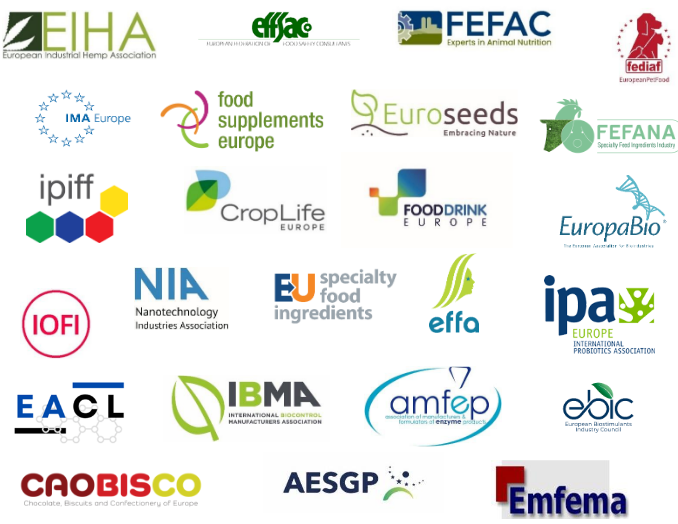Open letter calls for urgent reform at EFSA to boost EU agri-food competitiveness
Over 20 industry associations—including the European Industrial Hemp Association (EIHA)—have issued an open letter calling for urgent reform at the European Food Safety Authority (EFSA).

The European agri-food sector is a big part of the EU economy by employing over 30 million people and generating EUR 900 billion annually. Business operators increasingly encounter complex regulatory hurdles that risk diminishing the EU’s global competitiveness.
This situation has driven more than 20 major industry organisations, including the European Industrial Hemp Association (EIHA)—whose membership notably includes our company's CEO Florian Pichlmaier—to issue an open letter in the midst of EFSA's performance evaluation by the European Commission urging immediate improvements at the European Food Safety Authority (EFSA).

Guided by Regulation (EC) No 178/2002, EFSA has a central role in ensuring food and feed safety in the EU. However, agri-food industry stakeholders have increasingly raised concerns about inefficiencies within EFSA's current operational framework, emphasising that delays and cumbersome procedures prevent companies from bringing innovative products to market in Europe.
The letter on the one hand welcomes EFSA's recent efforts to improve transparency and dialogue with stakeholders, but at the same time calls for urgent action to streamline EFSA's risk assessment processes so that they are timely, science-based and conducive to innovation.

Among the primary grievances highlighted is the increasingly cumbersome administrative process mandated by the Transparency Regulation (TR). Companies now face significantly elevated costs due to procedural complexities, specialized staffing requirements, and lengthy timelines. As these barriers rise, EU-based companies are shifting investments to regions with clearer and more predictable regulatory frameworks.

The open letter proposes several concrete solutions, including revising the TR to better align with the EU’s priorities of competitiveness, innovation, and strategic autonomy. It also emphasizes enhancing the scope and usefulness of EFSA’s pre-submission advice, citing models like the European Medicines Agency, to provide more case-specific guidance, which could substantially reduce uncertainties and expedite processes.
Additionally, industry stakeholders have pointed to the ballooning volume of guidance documents from EFSA, noting these often add unnecessary complexity without improving the quality of risk assessments. The letter stresses the necessity for direct industry involvement and structured feedback loops when developing such guidance to ensure they are practical, coherent, and scientifically justified.

A significant point of contention involves the composition of EFSA’s scientific panels, which currently lack adequate representation of experts with practical industry knowledge and hands-on experience. The restrictive independence rules often exclude qualified experts, leading to a narrow selection repeatedly serving on these panels. Stakeholders recommend relaxing these restrictions slightly, provided conflict-of-interest safeguards remain robust, to allow for broader expert participation.

Moreover, the stakeholders express concerns over excessive and sometimes arbitrary data requests, which lead to resource-intensive efforts without clear scientific justification. They advocate for EFSA to strictly adhere to essential data requests underpinned by transparent scientific rationale, avoiding unpredictable mid-assessment requirement changes.
Finally, the open letter underscores the limited adoption of New Approach Methodologies (NAMs)—alternative non-animal testing methods—urging EFSA to prioritize and integrate these innovative approaches uniformly across assessments.

In conclusion, this open letter represents a unified call from important stakeholders in the agri-food industry to accelerate EFSA's ongoing performance evaluation. Stakeholders believe that with strategic reforms, EFSA can significantly improve the competitiveness of the EU agri-food sector, ultimately benefiting consumers, businesses and the European economy as a whole. For companies, including ours, which are directly involved through associations such as EIHA, these reforms could provide opportunities for innovation and sustainable growth.
Sources
https://euroseeds.eu/news/leading-business-and-agri-food-industry-stakeholders-call-for-a-more-efficient-efsa-to-boost-eu-agri-food-competitiveness/
https://euroseeds.eu/app/uploads/2025/06/Open-industry-letter-on-better-EFSA-performance__FINAL.pdf

